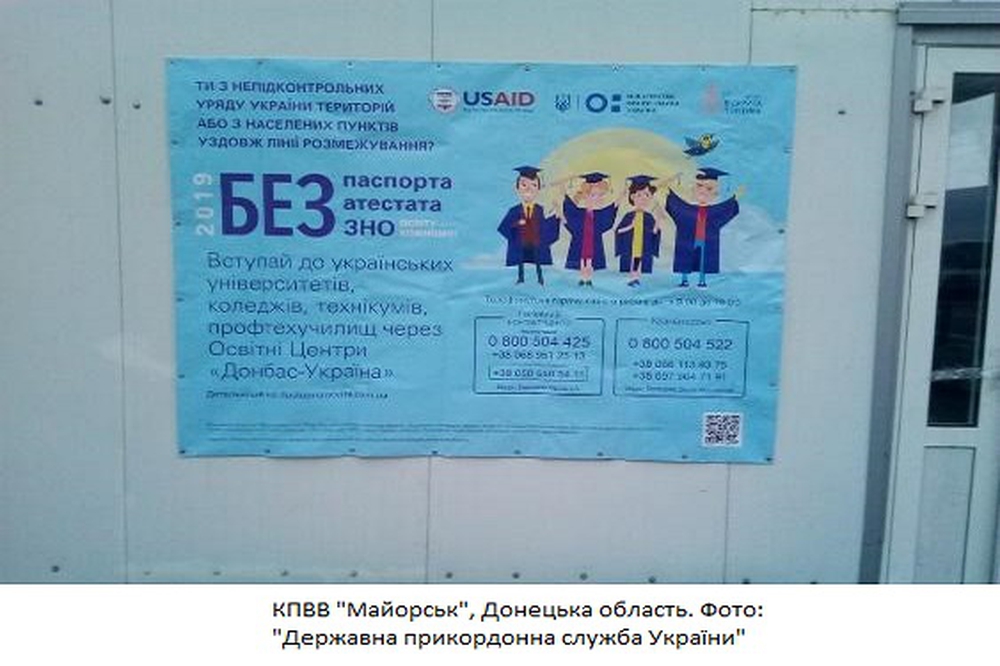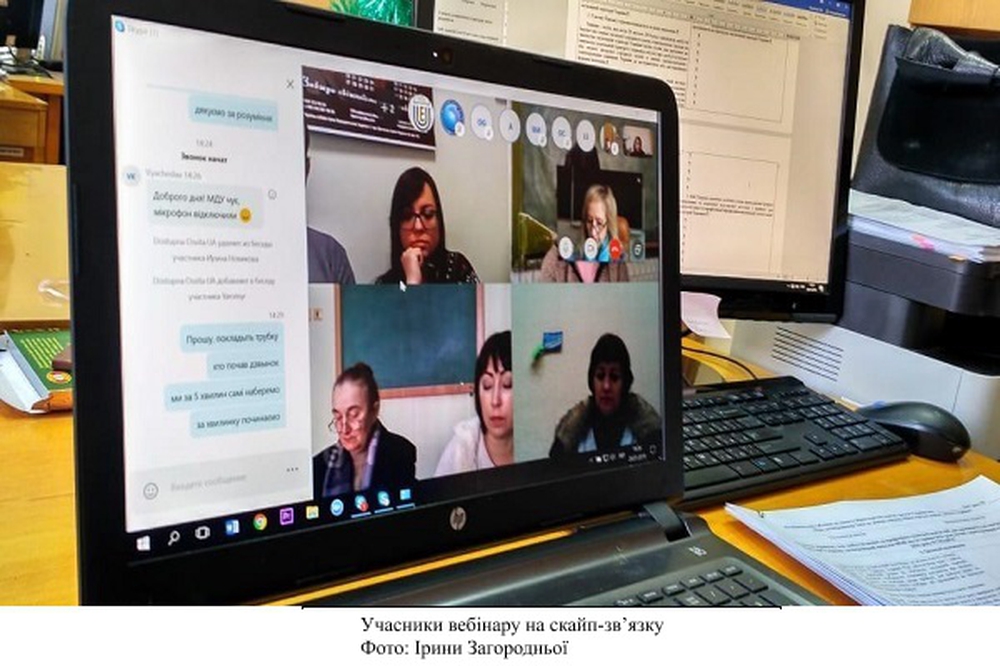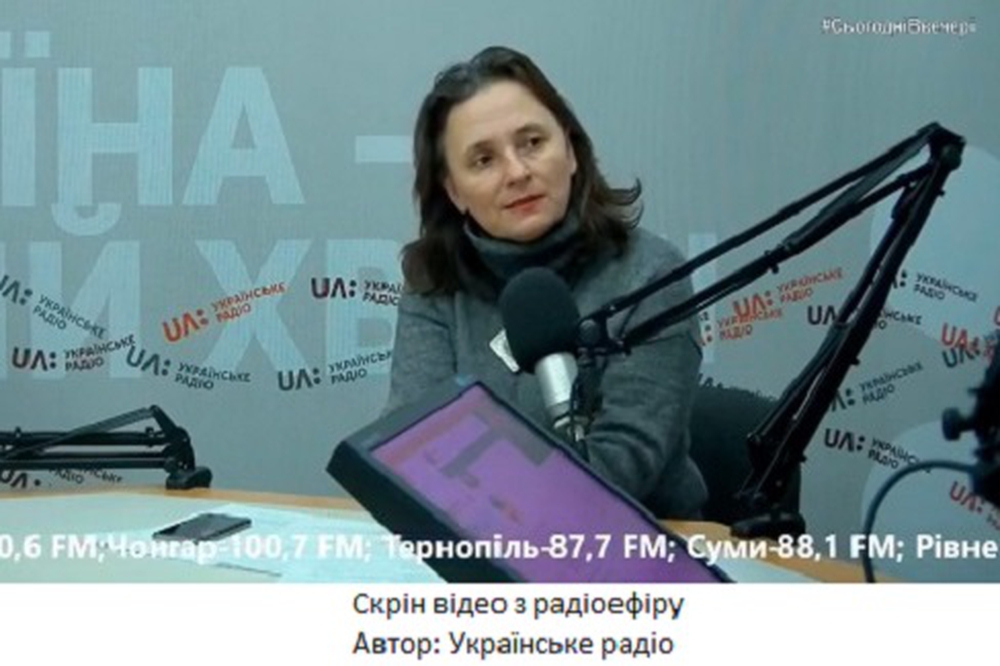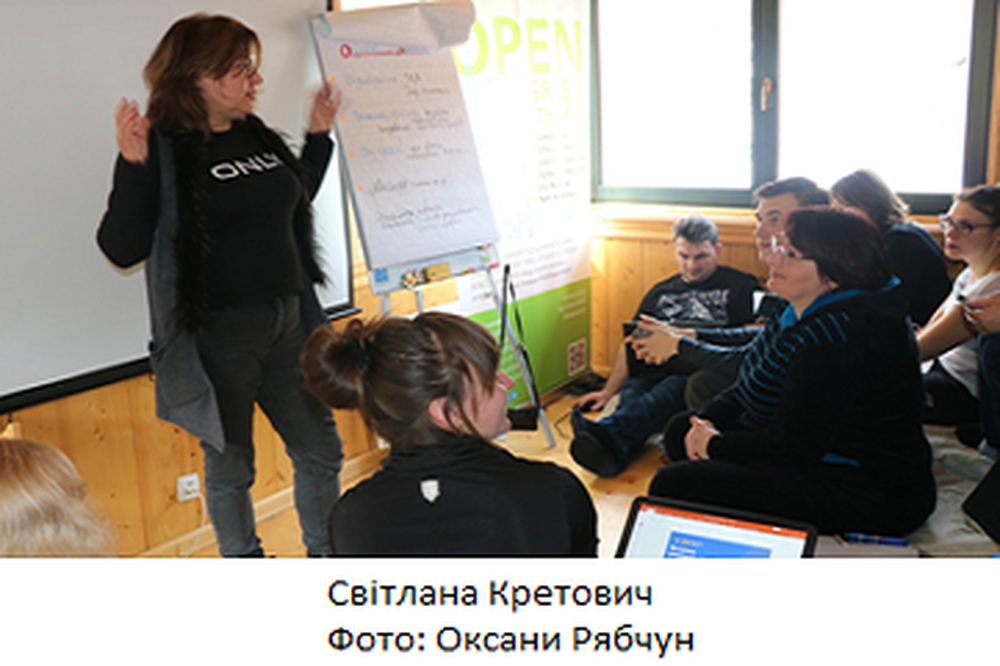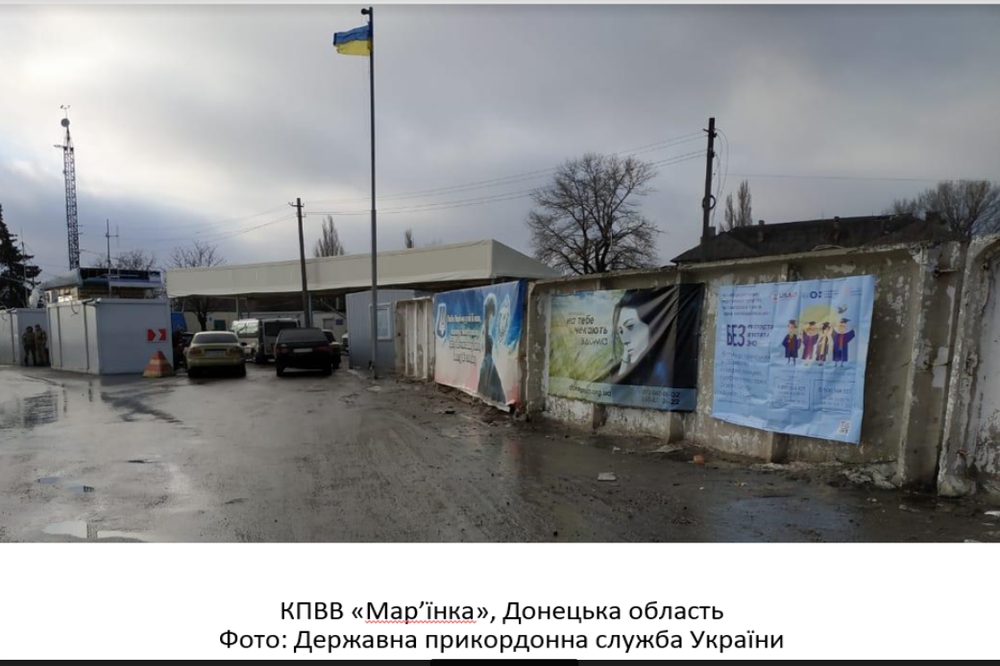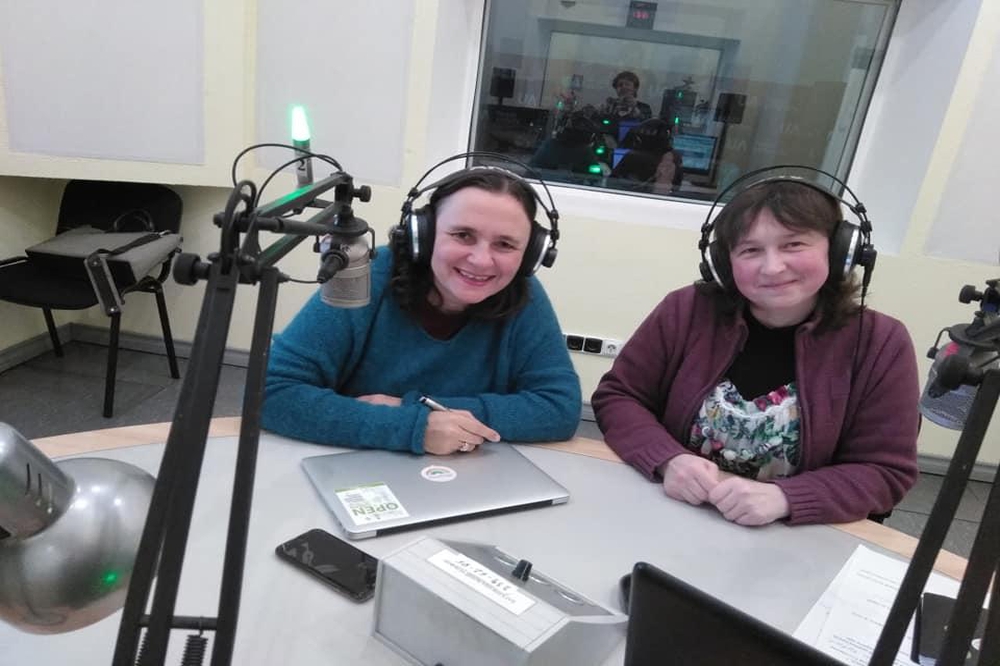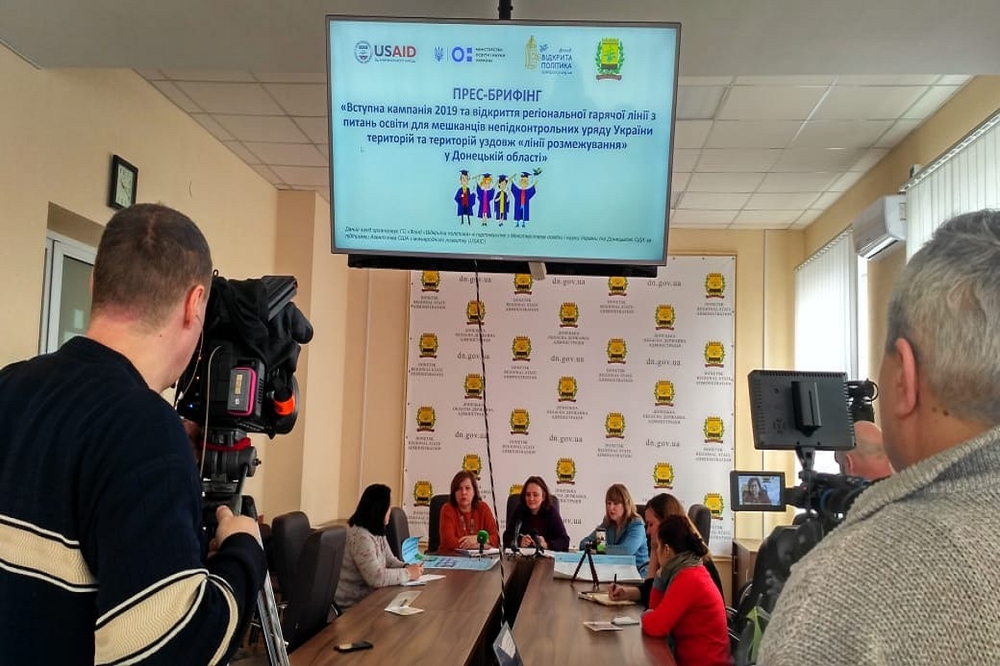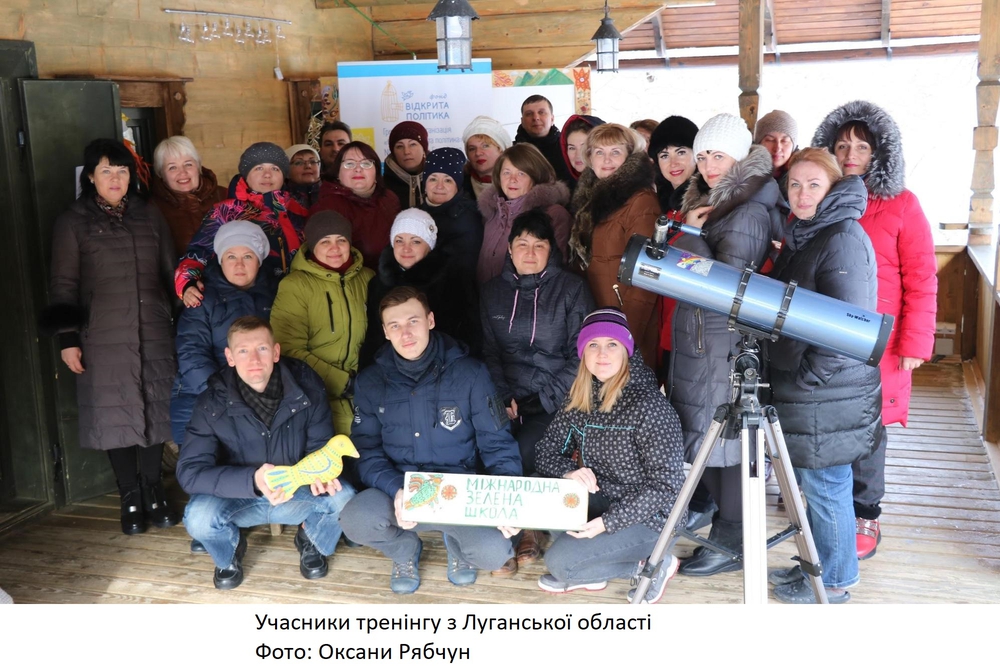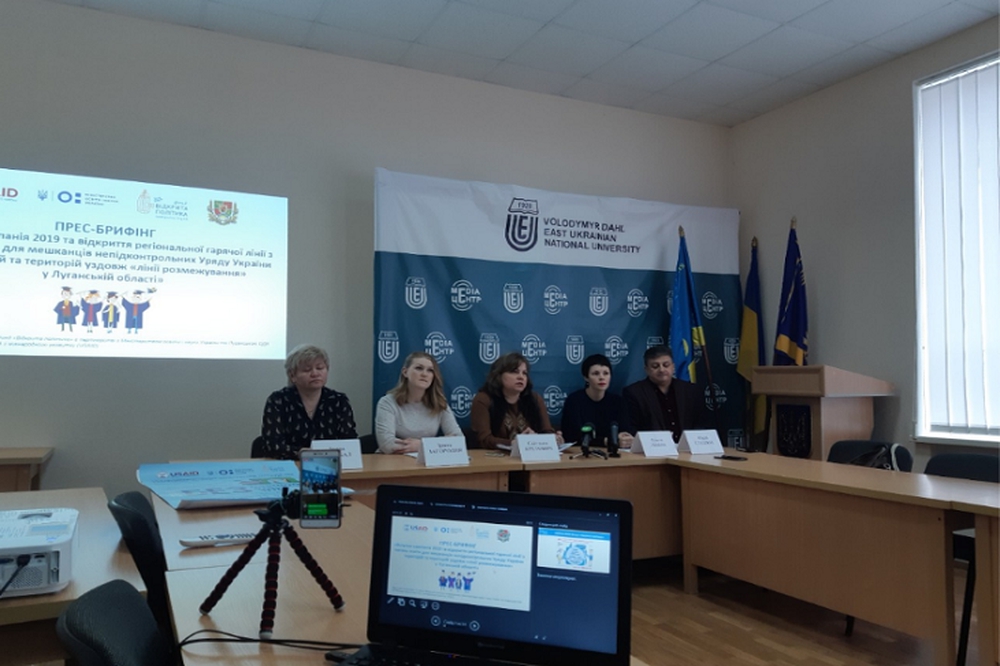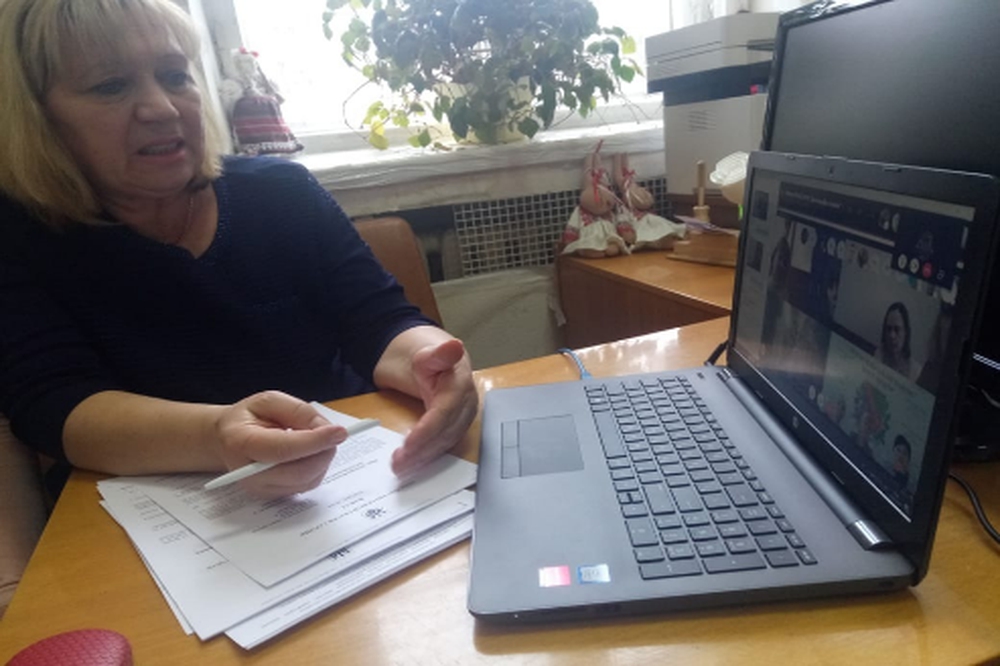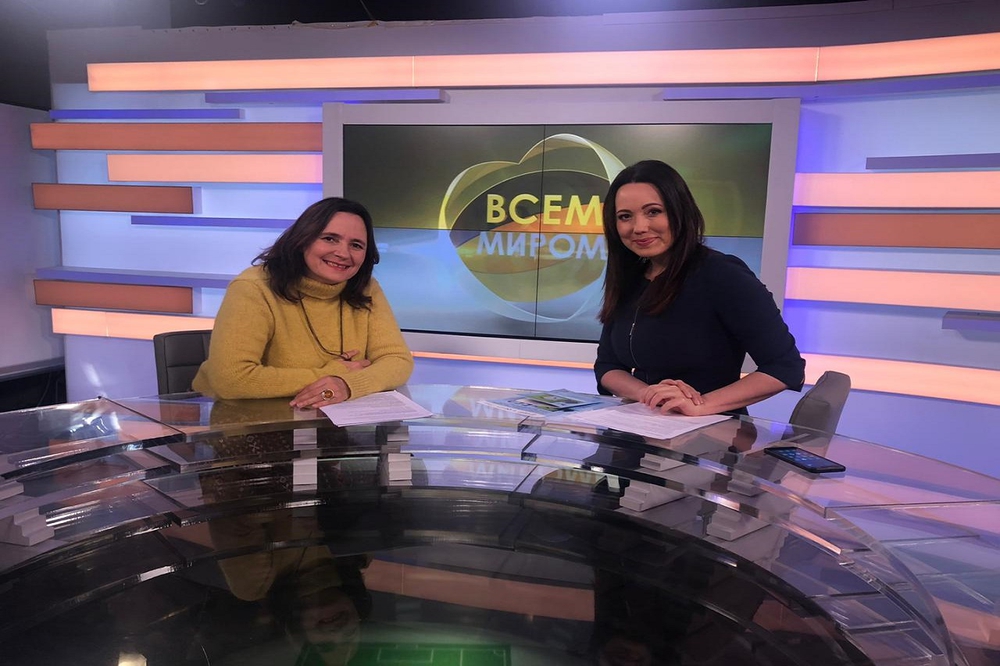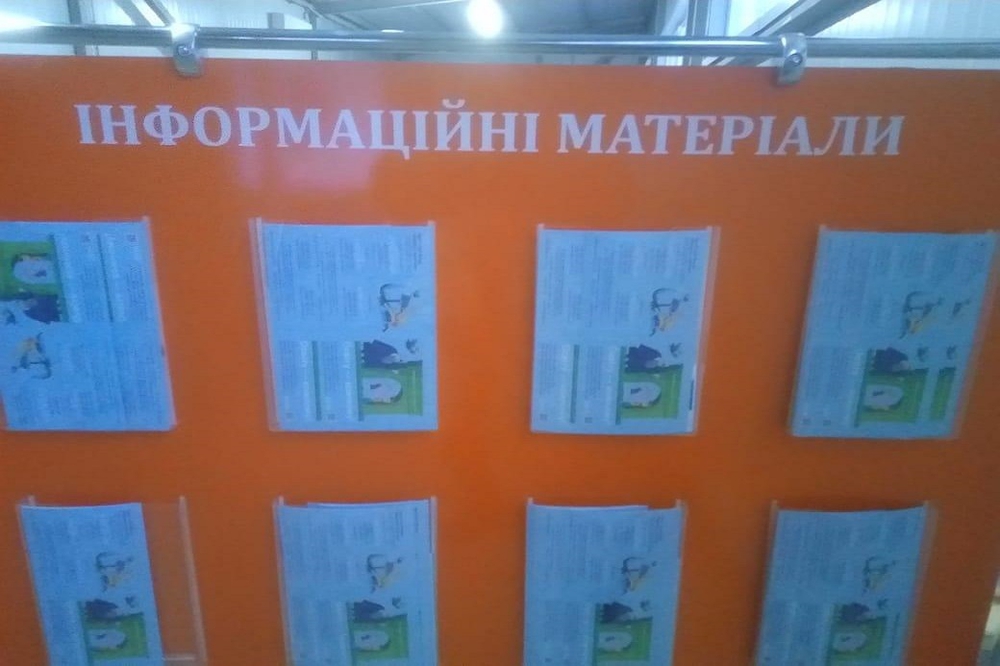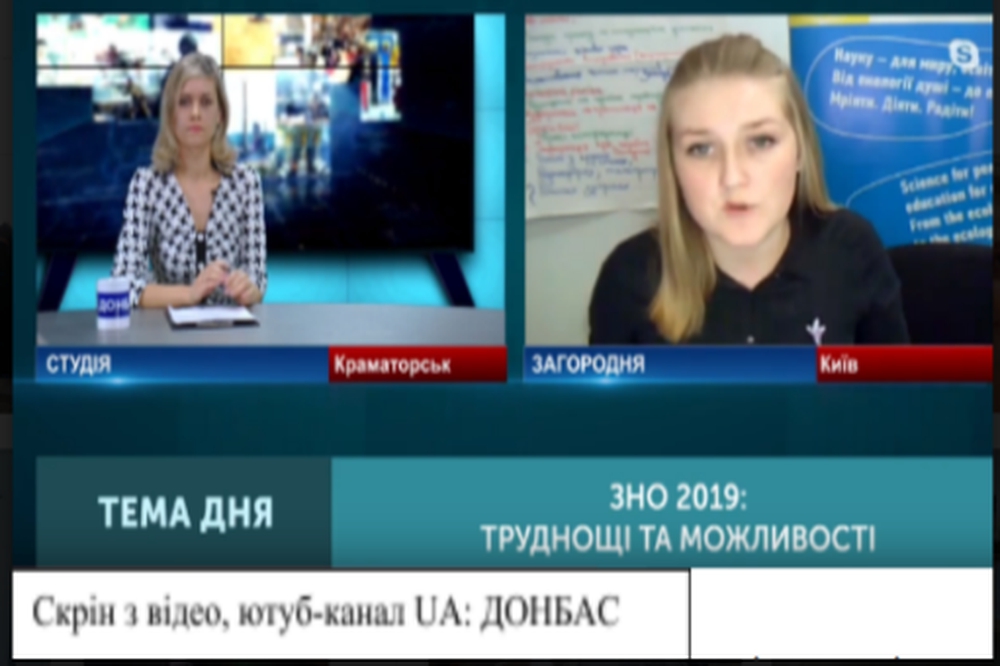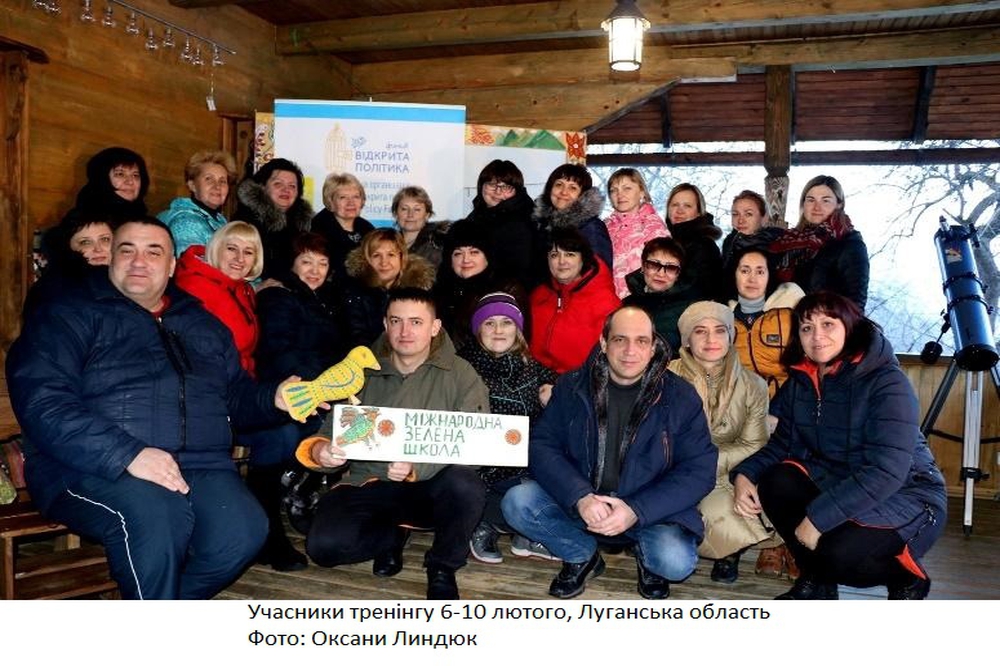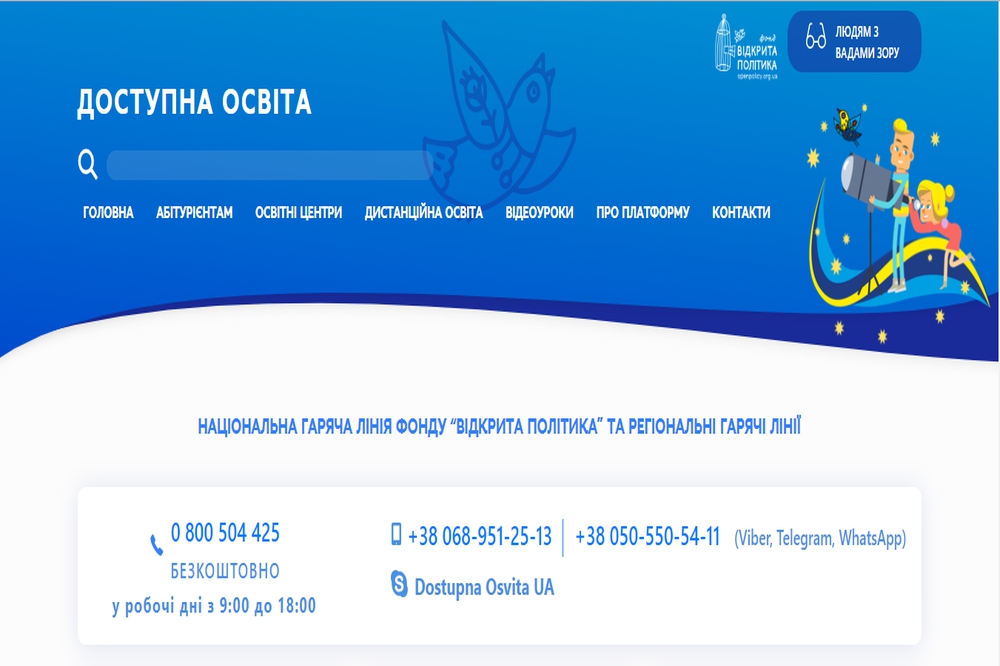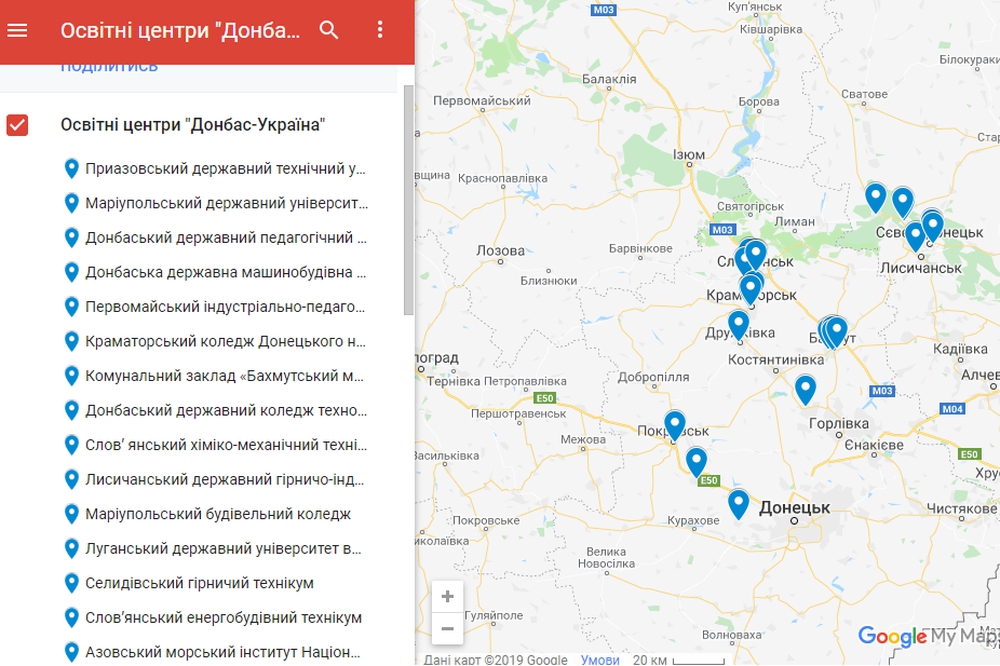News
The Foundation has implemented a USAID-supported project: more than 300,000 people were covered by the information campaign
April 3, 2019, 10 a.m.The Open Policy Foundation continues to implement projects that ensure equal access to quality education for children and youth from Luhansk and Donetsk Oblasts, as well as from non- government controlled areas of Ukraine (NGCA) and territories along the “contact line” (CL). In March, the Foundation has successfully completed the short-term project “Education Hotline for Non-government Controlled Areas of Ukraine,” which was implemented with the support of the United States Agency for International Development (USAID).
Within three months of the project, the Foundation opened regional hotlines in Kramatorsk and Sieverodonetsk, conducted training sessions and webinars for 92 educators from Eastern Ukraine and completely updated the “Dostupna Osvita” (Available Education) website. Posters, leaflets and large banners were created in the framework of an information campaign and placed at EECPs, and step-by-step instructions on simplified admission procedure in 2019 were developed for entrants from NGCA, CL. Animation video and audio clips were also created. They received the status of social advertising and broadcast on TV and radio channels, EECPs, and in Ukrzaliznytsya trains (from May).
The national and regional mass media and social networks widely covered activities in the framework of the project: the total coverage of the project information campaign is 341,500 Ukrainian citizens in the whole.
HOTLINE
Four toll-free 0 800 Ukrtelecom phones and 8 mobile phones including mobile apps Viber, WhatsApp, Telegram and Skype operated within the project.
During its implementation, from December 24, 2018, to March 12, 2019, the hotlines accepted 928 calls. Every fourth call of them was made by citizens from the East or Crimea, namely, 195 calls were from East (43 from Luhansk Oblast and 152 from Donetsk Oblasts) and 65 calls made from the occupied Crimea. Men consisted of 40%, women, 60%. For the same period last year, there were 522 calls (the number of calls increased almost twice).
The cooperation between the Open Policy Foundation and the Ministry of Education and Science of Ukraine, the Luhansk and Donetsk Regional State Administrations made it possible to open regional hotlines that began their work on March 11, 2019, at the regional departments of education and science in Kramatorsk and Sieverodonetsk. The consultants of the regional hotlines are financed from local budgets and participated in training and webinars of the Open Policy Foundation.
The nationwide hotline continues to work in Kyiv: 0 800 504 425 – toll-free. Mobile telephone numbers are also available: +38 068 951 2513, +38 050 5505411 (Viber/Telegram/WhatsApp). Skype: Dostupna Osvita UA.
The telephone numbers of the regional education hotline in the following cities:
Kramatorsk: 0 800 504 522 - toll-free; mobile telephone numbers: +38 066 113 9375, +38 097 904 7191. Skype: Dostupna Osvita Kramatorsk.
Sieverodonetsk: 0 800 504 511 - toll-free; mobile telephone numbers: +38 099 345 2076, +38 097 983 6531. Skype: Dostupna Osvita Severodonetsk.
TRAINING
Three webinars, 2 four-day training sessions, as well as 2 additional webinars and 2 workshops for staff of regional hotlines were conducted during the project. In total, 92 educators were trained - 46 persons participated in training sessions (17 representatives of the “Donbas-Ukraine” Education Centers, 21 representatives of schools with distance education, 8 representatives of education departments/administrations) from 20 cities of Donetsk and Luhansk Oblasts including territories along the “contact line.”
Webinars, conducted by the Open Policy Foundation together with the Ministry of Education and Science of Ukraine, related to topics “Simplified admission procedure: proposals for amendments to the order of Ministry of Education and Science No. 697 of June 21, 2016, which regulates the work of the “Donbas-Ukraine” Education Centers,” “Distance education for schoolchildren from non-government controlled areas of Luhansk Oblast” and "Distance education for schoolchildren from non-government controlled areas of Donetsk Oblast.”
The Foundation conducted two training sessions “Information campaign of educational institutions for youth from non-government controlled areas of Ukraine and territories along the ”contact line” for 46 educators from Donetsk and Luhansk Oblasts. This training was supported by USAID, together with MoES and regional education departments in these regions.
The participants of the training visited the International Green School named after Klim Churyumov, the village of Kosmach in Ivano-Frankivsk Oblast, to study how to develop a communication strategy and a media plan of an information campaign, create information products (motivational posters, banners, leaflets using the Canva program) and become acquainted with the peculiarities of the hotline for youth from NGCA. You can find more information about impressions of the training program from the publications on the Open Policy Foundation website at http://openpolicy.org.ua/en/news/278/
The Foundation invited MoES representatives, the acting director of the Department of Higher Education Svitlana KRETOVYCH and the senior specialist of the Displaced HEI Sector Iryna KRAVCHUK, to communicate with the participants at the training sessions.
MEDIA EVENTS
The experts of the Open Policy Foundation took part in 8 broadcasts. In particular, the Foundation’s experts spoke about the project, training, hotline during broadcasts on “Donbas,” “Espresso TV” and “UA: Donbas” TV channels and “Free Radio,” “Ukrainian Radio” and “Voice Donbass” radio stations. News stories about the press briefings were shared by 8 mass media: “Espresso TV,” “S-PLUS,” “Region-Donbas,” “UA: DONBAS,” “Chornomorka” TV channel, “STB,” “Luganshchyna.com,” and “Pulse Fm” radio. The publication monitoring is available at http://openpolicy.org.ua/en/news/276/ and http://openpolicy.org.ua/en/news/281/
Not only national and regional television and radio companies but also the www.62.ua site, one of the most rated resources for citizens from the East, provided a large coverage.
In addition, 2 press briefings on the topic “The 2019 admission campaign and the opening of the regional education hotline for residents of non-government controlled areas of Ukraine and territories along the ‘contact line’” were conducted during the project implementation. They were organized by the Foundation in partnership with the Ministry of Education and Science of Ukraine, the Donetsk and Luhansk Regional State Administrations.
The briefings were attended by Svitlana KRETOVYCH, the acting director of the Department of Higher Education and the head of the Sector of Displaced HEI of the Ministry of Education and Science of Ukraine, Iryna ZHDANOVA, the executive director of the Open Policy Foundation, Iryna ZAGORODNIA, an expert of the Open Policy Foundation, Olga LISHYK, the deputy head of the Luhansk Regional State Administration, Yurii STETSIUK, the director of the Department of Education and Science of the Luhansk Regional State Administration, Tetyana SIDASHEVA, the acting director of the Department of Education and Science of the Donetsk Regional State Administration, and Iryna TSYMBAL, the director of the Luhansk Regional Institute of Postgraduate Pedagogical Education.
Information products, including the animation video clip on admission opportunities in 2019, were presented for entrants from NGCA, the “contact line,” during the events.
Nearly 5,000 people (total coverage is over 20,000 people) viewed the online broadcast of briefings on the FB pages of the Foundation and the Ministry of Education and Science. Videos of the press briefings in Kramatorsk and Sieverodonetsk are available at http://tinyurl.com/y3lztz7y and http://tinyurl.com/yxwsslhj respectively.
The teacher of the Rubizhne School-Kindergarten Natalia SARANA and the director of the Rubizhne Secondary School number 3 of III degree Olena GEIKO took part in a telephone conversation during the radio broadcast with Iryna ZHDANOVA. Training participants and representatives of the Education Centers Viacheslav KUDLAY (the head of Mariupol State University) and Natalia MATSAI (the head of the Luhansk Taras Shevchenko National University) participated in a radio program with Iryna ZAGORODNA via telephone.
INFORMATION CAMPAIGN OF THE PROJECT
The total coverage of the information campaign within the project is 341,416 people. The number of supported media is 36. The total media coverage is 61,000.
In the framework of the project, the Open Policy Foundation created the following materials (social advertising) on educational opportunities for residents of NGCA, “contact lines”: 1 animation clip, 2 audio clips, layouts of printed materials (banners for EECPs, А4 cards, А1 posters, euro-booklets in Ukrainian and Russian languages - step-by-step instructions for entrants). The printed production has 4210 printed copies. Estimated coverage at EECPs is 226,530 people.
The animation video clip and audio clips are granted a status of social advertising in accordance with the letter of the National Council on Television and Radio Broadcasting of Ukraine.
The animation video clip was broadcast on the Open Policy Foundation’s YouTube channel at https://www.youtube.com/watch?v=77qt-pOalO0. As of the end of March, it has 800 views with a total coverage of around 1,000 views.
Since March, audio clips have been broadcasting at all 5 EECPs of Donetsk and Luhansk Oblasts. They are regularly broadcasts on “Public Radio,” “Free Radio,” the “Promin” radio and “Ukrainian Radio.”
The main media campaign will be launched after the presidential election in April-May 2019.
As a result of an agreement with Ukrzaliznytsya, information products will be placed in trains (posters) and broadcast via monitors in the Intercity trains (animation video clips) since May.
Information products (animation video clips, audio clips, printed products) were delivered to RSAs, the Departments of Education and Science of Donetsk and Luhansk RSAs, Education Centers, schools with distance education, vocational schools of Donetsk and Luhansk Oblasts. They were also posted on the Foundation’s website, the websites of Donetsk and Luhansk cities, in closed groups of Education Centers moderated by MoES, on local websites (education departments, Education Centers, schools). The layout of the euro-booklet was published in the “Donbas Inform” newspaper, which is distributed at EECPs and in social networks.
UPDATED SITE AND GOOGLE MAPS
The Dostupna Osvita website (dostupnaosvita.com.ua) was also fully updated and continued its work in the framework of the project. Now it has a more functional design, extra useful content with interactive Google Maps, and it is adapted for visually impaired people.
The dostupnaosvita.com.ua website is an assistant to every entrant and school student from the non-government controlled area of Ukraine and from Crimea. The website is free and WITHOUT registration, it also has video tutorials to get ready for IEE and SFA regarding the Ukrainian language, history of Ukraine, other subjects, and step-by-step video instructions.
Now, it will be more comfortable for entrants to choose the right Education Center and school because you can see addresses and phones of the Education Centers and schools with distance education/external studies on a Google’s map posted on the updated website.
Maps show all 37 “Donbas-Ukraine”(http://tinyurl.com/y69ptujr) and 37 “Crimea-Ukraine” (http://tinyurl.com/y693bt5z) Education Centers, as well as schools providing distance education/external study in Luhansk and Donetsk Oblasts (http://tinyurl.com/yx9olow3). When you point the cursor, a popup window appears in which you can see the full title of an institution, telephones, address and surname of its head. An e-mail address and website of an educational institution are also indicated for maximum ease of use and completeness of information.
It is important that dostupnaosvita.com.ua contains a separate list of schools providing distance education/external study in all regions of Ukraine. All data on Google’s maps and lists of the Dostupna Osvita online platform reference tables will be constantly updated and complemented.
For 2 months of the project implementation, the website has had 53 053 views. The number of views compared to last year increased by 8,000 over the same period.
The updated version of the website is presented to the partners of the UN Education Cluster on March 22.
The project continues to work with the support of UNICEF. In the summer 2019, the work of hotlines is planned in cooperation with the Ministry of Education and Science of Ukraine.

